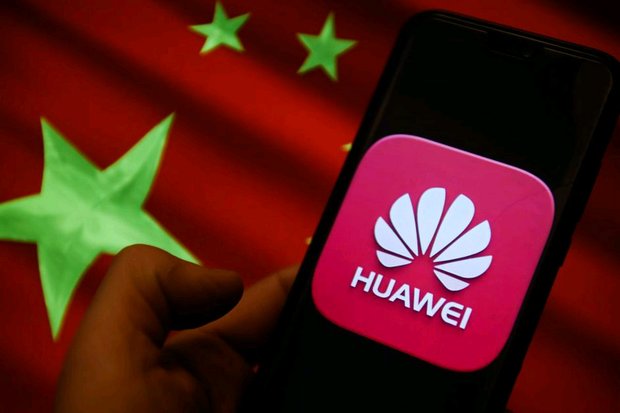
A year ago, Didi Chuxing Inc, China's largest ride-sharing company, looked like a quintessential "national champion". It had driven Uber Technologies Inc from the local market, attracted investment from Apple Inc and was contemplating a Hong Kong IPO worth as much as US$80 billion (2.5 trillion baht). State media coverage was fawning, government support was all but assured and the company's near-monopoly looked unassailable.
That's no longer the case. Thanks to a series of customer-safety scandals and poor service decisions, Didi has not only lost government support, it's inspired a new set of companies to target its core business. Nor is it the only champion suddenly confronting stiffer-than-expected competition from younger, scrappier rivals; Tencent Holdings Ltd, Alibaba Group Holding Ltd and other iconic Chinese technology companies face similar pressures. If such giants are far from being toppled, they're hardly as invulnerable as many assumed them to be.
The concept of a "national champion" dates back to the late 1990s, when the Chinese government first promulgated policies designed to foster homegrown innovation and technology companies that could further state aims, one of which was to be able to compete globally. Whether private or state-owned, firms are expected to maintain close ties to the government in exchange for regulatory and financial support.
Telecommunications giant Huawei Technologies Co Ltd exemplifies the role. Though it's now trying to reassure foreign clients of its independence, the company has close links to the government; Beijing reacted with fury to the arrest in Canada of Huawei's chief financial officer, detaining at least two Canadian citizens in what's widely assumed to be retaliation. Huawei has spent billions on developing advanced technology and spreading it to areas previously dominated by Western suppliers, from China's biggest cities to untapped markets in Africa.
State help gave companies the support they needed to grow. It's also bred complacency. Didi, for instance, quickly caught the eye of policymakers keen to boost China's role in the autonomous and electric vehicle market. Unwilling to see a foreign company dominate the ride-sharing industry, the government in 2016 issued regulations that made it harder for Uber to compete. Days later, the US company sold its China operations to Didi, which soon commanded 87% of the Chinese market.
The company then began to act like a monopolist. In search of cost savings after the expensive battle with Uber, it eliminated driver and rider subsidies. The result was the perception -- if not the reality -- that rides were becoming more expensive and harder to obtain. Then, instead of marketing its new carpooling service "Hitch" as another mode of transportation, Didi hyped it as a great way for singles to hook up, installing social media-like features in the app such as profile photos. The cavalier attitude had tragic consequences: In 2018, two female Hitch passengers were murdered by drivers within three months of each other. Amid a public and official backlash, Hitch was suspended. A reputation for ignoring safety lingers over Didi.
Competitors have seized the opportunity. Recently, Hello Chuxing, a former bike-sharing company now backed by a $583 million investment from Alibaba, launched a Hitch-like carpooling service in 300 Chinese cities. Among other features, its app includes a one-click connection to the police and multiple background checks for drivers. The company has received friendly coverage in state media. With Didi's Hitch off the market, Hello Chuxing has a shot at grabbing a share of the carpooling and ride-sharing market.
While China's other tech champions may not have stumbled as badly as Didi, they shouldn't feel safe either. Competition from nimble homegrown e-commerce companies has trimmed the earnings of Alibaba, China's most famous national champion, in recent months. Meanwhile, Tencent's ubiquitous social networking and commerce app WeChat, with over 1 billion monthly users, seems ripe for disruption.
WeChat has two main problems. At home, where it dominates, the service has failed to draw younger users (especially those attracted to video) and is increasingly alienating others keen to divide their personal and professional timelines for privacy's sake. Abroad, it's had little success localising its services and breaking into markets dominated by Facebook Inc and its WhatsApp and Instagram services.
Upstart unicorn Beijing ByteDance Technology Co, by contrast, has developed the short-video sharing platform TikTok, which has become wildly popular elsewhere in Asia and even North America; it just passed a billion downloads globally. TikTok's Chinese counterpart, Douyin, has been equally successful at home, giving the company the international networking hit that continues to elude WeChat. Unsurprisingly, WeChat blocks the sharing of Douyin videos on its platform.
And the challenge from ByteDance is growing. In January the company launched a Snapchat-like service called Duoshan, which has been downloaded 5 million times in the last month. While that's nothing compared to WeChat's 1 billion users, it's double the downloads of the older app. Indeed, WeChat was so alarmed by increasing local competition that it blocked Duoshan and two other apps from its platform in January.
Such defensive tactics might work, especially if the government decides to protect established champions in the interests of stability. But, relying on state help probably isn't the smartest strategy in a fast-moving digital marketplace such as China's. National champions would be wiser to rediscover the hunger and innovative energies that helped them succeed in the first place. - BLOOMBERG OPINION
Adam Minter is a Bloomberg Opinion columnist.
